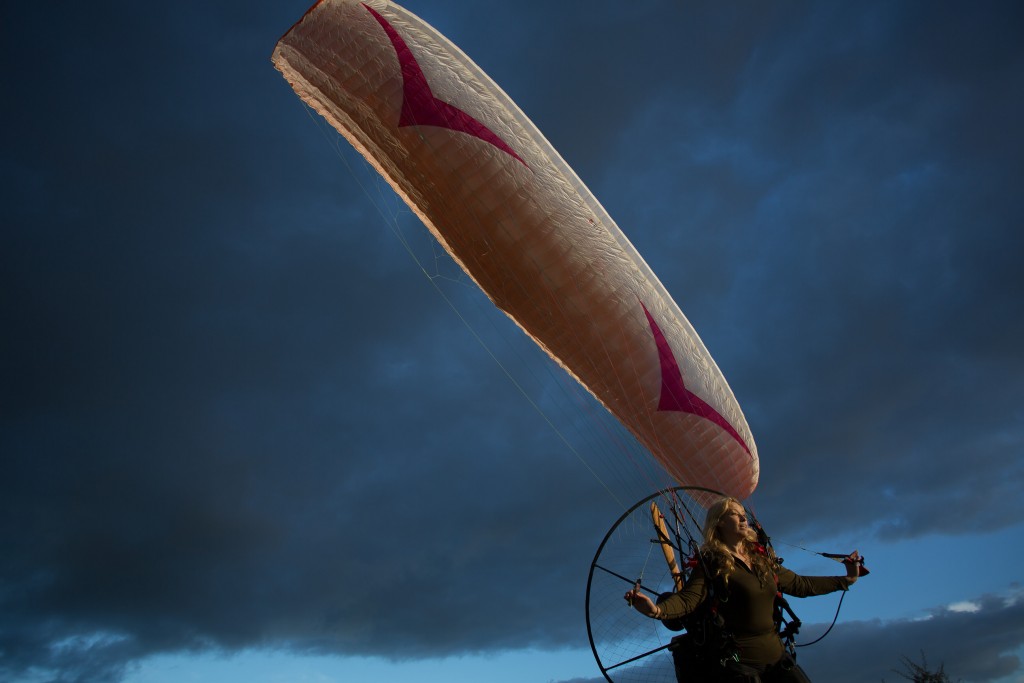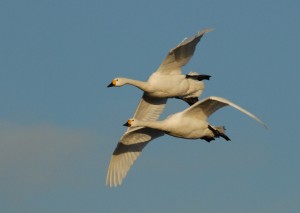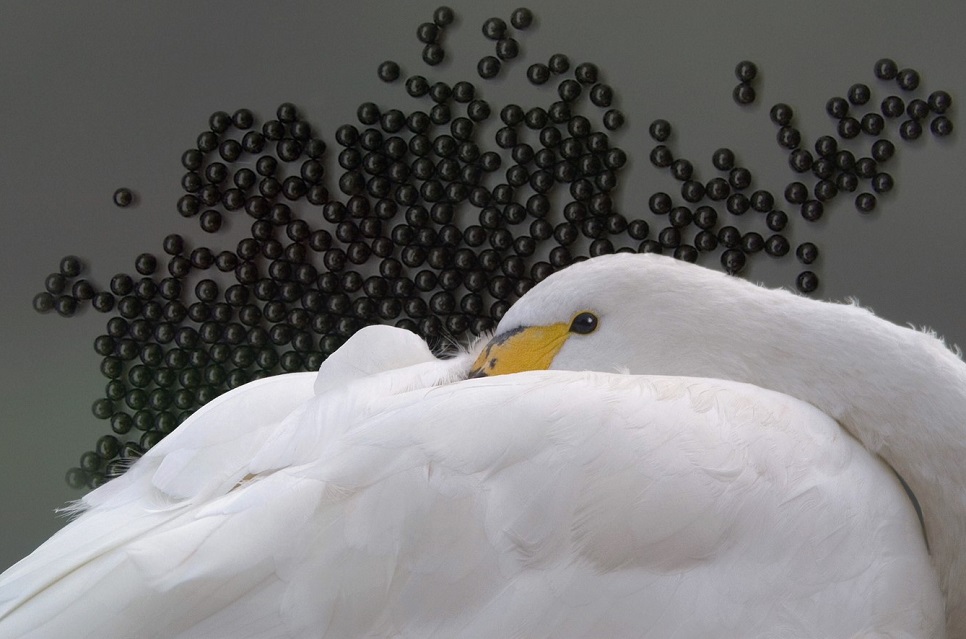From Russia with swans: woman’s first ever paramotor ‘migration’
A champion sportswoman and conservationist will fly 4,500 miles from the Russian Arctic to Britain next autumn, using just a parachute wing and strapped to a small propeller engine, in the first ever attempt to follow Bewick’s swans on their annual migration.

The expedition will uncover new science about the Bewick’s swans, whose numbers have halved in the last 20 years, and unite people from different cultures to try to reverse the decline.
Sacha Dench, who works for the Wildfowl & Wetlands Trust (WWT) and is a former British and Australian free-diving champion, will follow the swans in her paramotor as winter drives them off their breeding grounds. She will film and make live broadcasts along the way.

Her first challenge will be to cross the Russian tundra, one of the most wild and remote places on earth. Over ten weeks she will cross 11 countries, become the first woman ever to paramotor across the Channel, and fly along the River Thames through central London.
She will face many of the same challenges as the swans, from extreme weather and polar bears to a hostile landscape of pylons and tall buildings, as well as struggling to find safe places to land, rest and refuel.
Sacha Dench said:
“This expedition is very close to my heart. It’s a chance to learn more about Bewick’s swans and why they’re declining. But just as important, it’s a chance to bring people from very different cultures together because the swans’ fate rests in our hands. We can’t let the Bewick’s swan population’s decline continue for another decade.
“The idea formed as I realised that many of my paramotoring contacts in Europe were also farmers and hunters – two groups that are crucial to the swans’ survival. This adventure seemed the perfect way to spark the interest of people on the ground.
“Wherever you land as a paramotorist, whoever’s nearby is understandably curious to know where you’ve come from and why. I’ll be using that interest to tell people the swans’ story and to invite everyone I meet - from reindeer herders to town planners – to get involved in helping them to survive.
“As we develop the expedition, we’re exploring new research opportunities, from doing an aerial survey of the swans’ breeding grounds to documenting the turbulence from a wind turbine. I hope this endeavour will live up to WWT’s rich history of scientific expeditions that stretches back to Peter Scott exploring Iceland and, ultimately, to his father’s expedition to the South Pole.”
WWT is currently looking for volunteers to join Sacha’s team – one person to help plan the expedition, and a further two to work as mechanic and filmmaker on the expedition itself. Anyone interested can apply at www.wwt.org.uk/fots/volunteer.
WWT is also looking for supporters. A sponsorship brochure is available on request.
WWT’s work has focused on Bewick’s swans for over 50 years. Its logo is a pair of Bewick’s swans in flight. WWT staff helped write an international action plan to reverse the current decline of Bewick’s swans in Europe, which was adopted by the governments of countries visited by the swans in 2012.
Sacha Dench and WWT are working closely with government officials, NGOs and the media in all 11 countries in order to make the most of the opportunity provided by the Flight of the Swans expedition.

